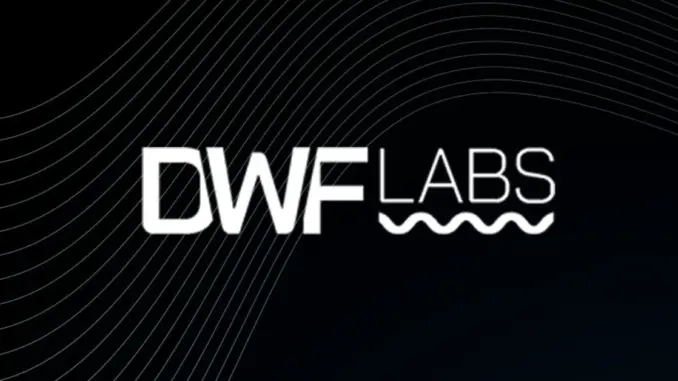
You might be hard pressed to name a member of their team and you may even struggle to fully describe what it is they do but you know the name – you know it like your own – because you see it everywhere. Crypto project just closed a seed round? Led by DWF. Secured market making for its token? DWF. Hackathon confirmed primary sponsor? DWF.
Crypto is an industry that runs on three-letter tickers and abbreviations – BTC; ETF; ERC – but few are more powerful or ubiquitous than DWF. Quietly, but commandingly, the company has grown into one of the lead investors and incubators within web3, inking thousands of deals and acquiring a stake in more crypto companies than any other. At the same time, its market making and OTC desks have been following suit, dominating their respective sectors with ruthless efficiency.
We know how it’s going with DWF Labs: extremely well. But how did it all start and how were they able to rise so quickly amidst a sea of competition? It’s time for a record scratch as we take it back to the very start and chart the emergence of the web3 juggernaut.
How It All Began
DWF – no “Labs” at this stage – was founded in 2018 by Heng Yu Lee and Eugene Ng as a high-frequency trading (HFT) firm. Their speciality was quantitative trading, which relies on mathematical models, statistical analysis, and algorithmic techniques to identify trading opportunities. Using data rather than simply intuition, in other words, and combining it with HFT to rapidly execute large volumes of orders at extremely high speeds, often within milliseconds.
Big brain stuff, albeit DWF were by no means the only firm attempting this in 2018, which was around the time that crypto began attracting serious traders who’d previously been focused on TradFi. Heng Yu Lee and Eugene Ng were clearly masters of their craft, and quickly – as befits high-frequency traders – had a handle on spot, options, and perps markets and were making serious profits.
But what to do with this newly acquired money and crypto knowledge? Why, put it back into crypto of course through the evolution of DWF into a fully fledged investment firm. Not only would this provide an opportunity to “pay it forwards” by supporting the web3 startups of tomorrow, but it would further increase DWF’s knowledge and influence throughout the blockchain industry. And thus, in 2022, DWF Labs was formed.
One Becomes Three
With the launch of DWF Labs, founded with Managing Partner Andrei Grachev, the DWF name was about to become synonymous with three core services, whereas before it had been solely known for trading: market making, investment, and OTC.
Whereas most new web3 investment firms take their time to appraise the market, get to know potential partners, and size up their options, DWF plunged in headfirst. The company was in the fortunate position of already knowing the market, the prospective partners, and the the startups and so this wasn’t a reckless gamble: it was a calculated decision to leverage the monetary and intellectual capital its founders had built up over the previous four years.
In the last two years, DWF Labs has written checks for hundreds of portfolio companies, with its name routinely cropping up first on newswires announcing funding rounds for startups spanning such crypto verticals as AI, GameFi, DeFi, and RWAs. Despite amassing a greater portfolio of companies than any other investor, DWF Labs remains hungry for an even larger slice of the pie, and is still actively courting startups that have game-changing ideas and a similarly outsized sense of ambition.
What’s Their Endgame?
As the adage goes, never become the main character in crypto. Success coupled with ambition can prompt envy and inspire haters to plot your downfall. Bigger companies than DWF Labs have become a target after stepping outside of their lane. So far, however, DWF has avoided censure thanks to its policy of strict neutrality. It may have a finger in many pies, but it doesn’t seek to influence the market through the various trading and market making activities it engages in.
Crucially, DWF doesn’t attempt to “pump its bags” or shill its portfolio companies. It’s reached a size where its track record speaks for itself. For example, the company now provides liquidity to more than a quarter of the top 100 cryptos by market cap. It’s also now worked with more than 700 crypto companies, from startups to exchanges and blockchains.
So what is DWF’s endgame? “Our long-term mission is to be the next-generation liquidity partner of choice,” they assert, but that goal has already been accomplished. Rather, its focus seems to be on supporting the long-term success of the industry by nurturing the projects that have the potential to become the next crypto unicorns by creating the next narrative or blockchain breakthrough.
DWF is long crypto, but not recklessly long. It’s hungry for more success, but not at the expense of burning bridges or alienating existing partners. And it’s eager to fund more web3 projects, but only if they meet its rigorous appraisal standards. Things have been going well for DWF ever since they started out in 2018. The difference is that back then, few people knew about them. Following the formation of DWF Labs in 2022, the entire industry knows their name and is monitoring their every move.








Kommentar hinterlassen